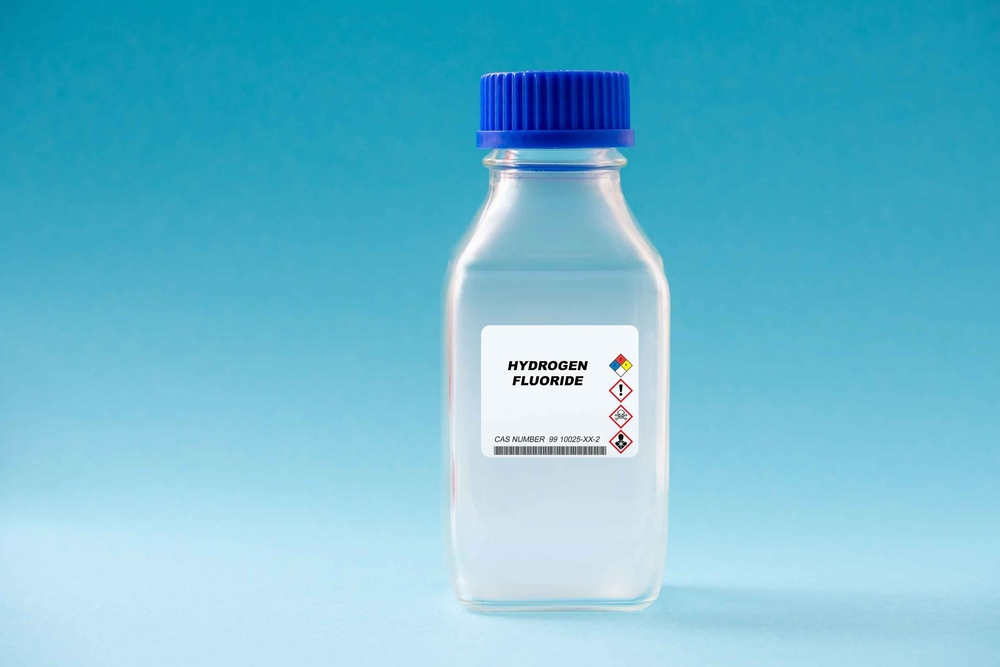The U.S. Chemical Safety and Hazard Investigation Board (CSB) applauded the U.S. Environmental Protection Agency’s (EPA) updated National Enforcement and Compliance Initiatives (NECIs), which continue the EPA’s focus on reducing risks of accidental releases at industrial and chemical facilities.
For the first time, the EPA’s initiatives emphasize inspecting and addressing noncompliance at facilities that use highly toxic hydrogen fluoride (HF), the chemical safety board said in an August 31 statement.
In recent years, the CSB has investigated several incidents involving a release of HF or a “near miss” of an HF release that put nearby communities at risk.
A major fire and explosions in 2019 at the Philadelphia Energy Solutions (PES) Refinery in Philadelphia, Pennsylvania, resulted in the release of more than 5,000 pounds of highly toxic HF into the air. Fortunately, the surrounding community wasn’t harmed by the HF release due in part to favorable wind conditions. If the HF had traveled beyond the refinery boundary, there could have been significant adverse impacts within the community, according to the CSB.
At the Husky Superior Refinery in Superior, Wisconsin, two vessels in the fluid catalytic cracking (FCC) unit exploded in 2018, propelling metal fragments throughout the facility that punctured a nearby asphalt storage tank at the refinery and resulted in a serious asphalt fire. An HF storage tank, which was closer to the explosion than the asphalt tank, could also have been punctured by debris from the explosion. Because of the potential risk of a release of highly toxic HF from the refinery, over 2,500 residents of Superior were evacuated from their homes, and the city of Duluth, Minnesota, issued a shelter-in-place order.
At a former ExxonMobil refinery in Torrance, California, an electrostatic precipitator (ESP) in the FCC unit exploded in 2015 and spewed debris that nearly hit two tanks containing modified HF. FCC catalyst spread throughout the nearby community because of the explosion. While no HF was released, the event raised significant concerns in the community about the potential impact of an HF release at the facility.
CSB urges chemical companies to prepare for hurricanes
The CSB urged the chemical industry to immediately prepare for potentially more frequent and more powerful hurricanes and other extreme wind events in the months ahead after the National Oceanic and Atmospheric Administration (NOAA) updated its hurricane outlook, predicting “above average” activity for the remainder of the 2023 Atlantic hurricane season.
The Atlantic hurricane season begins June 1 and ends November 30.
The CSB investigated 2017 and 2020 chemical accidents at Texas and Louisiana chemical facilities impacted by hurricanes.
Hurricane Harvey, a Category 4 hurricane, made landfall in southeast Texas on August 24, 2017. Southeast Texas and southwest Louisiana experienced unprecedented amounts of rainfall produced by the storm, causing significant flooding.
The Arkema, Inc., chemical plant in Crosby, Texas, lost power and backup power, disabling the facility’s refrigeration system. The plant manufactures organic peroxides, which are reactive and inherently unstable. As temperatures rose at the plant, the peroxides began to spontaneously combust.
Three fires burned at the plant over the next few days, resulting in the combustion of 35,000 pounds of organic peroxide.
At the Bio-Lab, Inc., Lake Charles facility in Westlake, Louisiana, extreme winds from Category 4 Hurricane Laura on August 27, 2020, caused severe damage to the facility, even tearing the roofs off buildings storing trichloroisocyanuric acid (TCCA).
Rainwater contacted the TCCA stored inside, starting a chemical reaction and subsequent decomposition.
In its investigation of the Bio-Lab incident, the CSB noted that Bio-Lab didn’t learn the lessons of the organic peroxide decomposition incident at the Arkema facility. Bio-Lab also failed to implement industry guidance for extreme weather preparation that was updated and published after the Arkema incident.
The CSB recently urged the Federal Energy Regulatory Commission (FERC) to address hurricanes and other high-wind extreme weather events in updates to its Transmission System Planning Performance Requirements for the nation’s bulk-power system.

